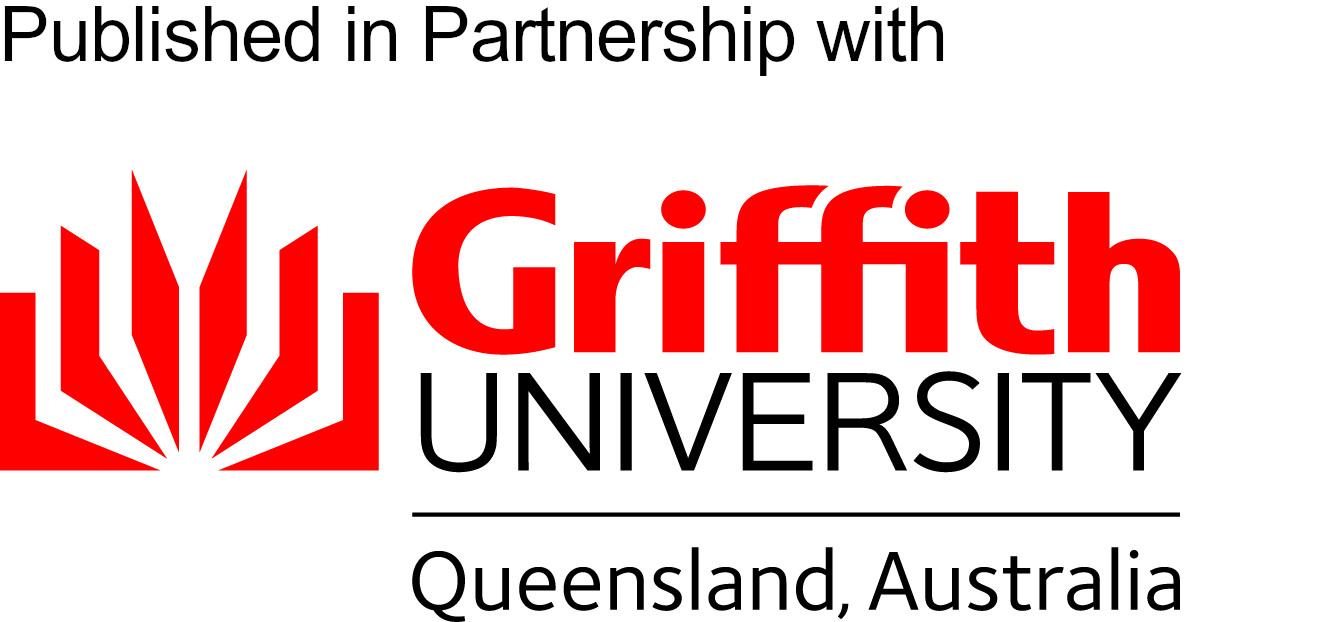Double trouble
The teacher/satirist duality in Thea Astley's critical writings
DOI:
https://doi.org/10.1017/qre.2019.28Keywords:
Thea Astley, critical writing, self-representation, teacher, satiristAbstract
Over a fifty-year period, from 1944 to 1994, Thea Astley published a number of critical writings, including essays, newspaper articles and reviews, and short reflections and meditations on her craft. Despite a renewed interest in Astley’s work, however, most critical interrogations of her oeuvre focus on her novels, and more recently her poetry. As a result, Astley’s critical writing has not been afforded the same breadth and depth of investigation as her fiction. This lacuna is troubling, since Astley’s critical works are important not only for their insight, but for what they reveal about Astley’s self-representation, and in particular the dual identity that she embodied as both a teacher and a satirist. This article argues that these dual roles emerge clearly in Astley’s essays and in fact are inextricable from many of her works. Further, the tensions between these two personae — Astley as teacher and Astley as satirist — reveal natural overlaps with her imaginative writing, and reflect her changing ideas about fiction writing, literature, and education.
References
Anderson, Don 1985. ‘Writers contrast in age and style’, National Times, 5–11 October, p. 31.
Anon 1960. ‘Smalltown gossip’, Bulletin, 22 June, pp. 2, 58.
Ashworth, Arthur 1966. ‘The slow natives’, Southerly 26(1): 62–6.
Astley, Thea 1958. Girl with a monkey. Sydney: Angus & Robertson.
—— 1960. A descant for gossips. Sydney: Angus & Robertson.
—— 1962. The well-dressed explorer. Sydney: Angus & Robertson.
—— 1965. The slow natives. Sydney: Angus & Robertson.
—— 1968a. A boat load of home folk. Sydney: Angus & Robertson.
—— 1968b. ‘The monstrous accent on youth’, Meanjin 27(1): 109–10.
—— 1970. ‘The idiot question’, Southerly 30(1): 3–8.
—— 1972. The acolyte. Sydney: Angus & Robertson.
—— 1975. ‘The higher illiteracy: A cri de coeur’, Education News 2–3: 78–80.
—— 1976. ‘Being a Queenslander: A form of literary and geographical conceit’, Southerly, 36(3): 252–64.
—— 1979. Hunting the wild pineapple and other related stories. Melbourne: Thomas Nelson.
—— 1981. ‘Writing in North Queensland’, LiNQ 9(1): 2–10.
—— 1982. An item from the late news. Brisbane: University of Queensland Press.
—— 1985. Beachmasters. Ringwood: Penguin.
—— 1986. ‘No nostalgia in Brisbane, only changes’, Sydney Morning Herald, 14 January, p. 10.
—— 1989. ‘Astley: A letter from Cambewarra’, Canberra Times, 19 March, p. 22.
Baker, Candida 1986. ‘Thea Astley’, in Yacker: Australian writers talk about their work. Sydney: Picador, pp. 28–53.
Baker, Sidney 1960. ‘Social satire’, Sydney Morning Herald, 7 May, p. 14.
Bogel, Fredric 2001. The difference satire makes: Rhetoric and reading from Jonson to Byron, New York: Cornell University Press.
Buckridge, Patrick 1995. ‘Queensland literature: the making of an idea’, Queensland Review, 2(1): 30–41.
Burrows, John 1963. ‘Chalk and cheese’, Southerly 23(4): 276–80.
Cantrell, Kate 2018. ‘A state of slogans’, Kill Your Darlings, 12 November, https://www.killyourdarlings.com.au/article/a-state-of-slogans.
Ellison, Jennifer 1986. ‘Thea Astley’, in Rooms of their own. Ringwood: Penguin, pp. 50–69.
Garner, Helen 1982. ‘In the tradition of Wake in fright’, National Times, 17–23 October, p. 22.
Gildersleeve, Jessica 2012. ‘Trauma, memory, and landscape in Queensland: Women writing “a new alphabet of moss and water”’, Queensland Review 19(2): 205–16.
Goldsworthy, Kerryn 1983. ‘Thea Astley’s writing: Magnetic north’, Meanjin 42(4): 478–85.
Goodenough, Warwick 1975. ‘Short essay writing courses at tertiary level’, English in Australia 33: 21–46.
Haley, Martin 1958. ‘Review of Girl with a monkey’, Catholic Leader, 28 August, p. 10.
Heath, Sally 2019. Meanjin anthology. Melbourne: Melbourne University Press.
Jordan, Deborah and Poland, Louise 2013. ‘Star marking: A publishing history of Thea Astley’, etropic 12(2): 21–9.
Kinross-Smith, Graeme 1982. ‘Thea Astley’, Kunapipi 4(1): 20–37.
Koval, Ramona 2000. ‘Ramona Koval interviews Thea Astley, co-winner of the Miles Franklin award for Drylands’, Australian Book Review 222: 46–7.
Lamb, Karen 2015. Thea Astley: Inventing her own weather. Brisbane: University of Queensland Press.
Lever, Susan 2005. ‘Ratbag writers and cranky critics: In their praise’, JASAL 4: 11–22.
Lindsay, Elaine 2000. Rewriting God: Spirituality in contemporary Australian women’s fiction. Amsterdam: Rodopi.
McLaren, John 1966. ‘Recent novels’, Overland 34: 49–50.
Richey, Norma Jean 1986. ‘An interview with Thea Astley’, South Central Review 3(2): 90–102.
Ross, Robert 1986. ‘An interview with Thea Astley’, World literature Written in English 26(2): 264–69.
Sawyer, Wayne and Durrant, Cal 2019. ‘Dartmouth and personal growth in Australia: The New South Wales and Western Australia curricula of the 1970s’, in Andrew Goodwin, Cal Durrant, Wayne Sawyer, Lisa Scherff, and Don Zancanella (eds), The future of English teaching worldwide. New York: Routledge, pp. 65–80.
Sheahan-Bright, Robyn and Glover, Stuart (eds) 2002. Hot iron corrugated sky: 100 years of Queensland writing. Brisbane: University of Queensland Press.
Sheridan, Susan 2003. ‘Thea Astley: A woman among the satirists of post-war modernity’, Australian Feminist Studies 18(42): 261–71.
—— 2011. Nine lives: Postwar women writers making their mark. Brisbane: University of Queensland Press.
—— 2016. The fiction of Thea Astley. New York: Cambria Press.
Sheridan, Susan and Genoni, Paul (eds) 2006. Thea Astley’s fictional worlds. Newcastle-upon-Tyne: Cambridge Scholars.
Suzuki, Mihoko 2016. ‘Margaret Cavendish and the female satirist’, in Sara H. Mendelson (ed), Margaret Cavendish. New York: Routledge, pp. 55–72.
Taylor, Cheryl 2011. ‘Thea Astley’s poetry: A prequel to her fiction’, paper presented to the UQ Library Friends of Fryer, Brisbane, 14 March.
Tennant, Kylie 1962. ‘Fiction chronicle (2)’, Meanjin 21: 505–9.
Walker, Suzanne 1974. ‘Thea Astley interviewed by Suzanne Lunney’, Oral History Collection, National Library of Australia.
Walshe, Robert 1975. ‘Thea Astley’, in Speaking of writing: Seventeen leading writers of Australian and New Zealand fiction answer questions on their craft. Sydney: Reed, pp. 9–14.
Willbanks, Ray 1991. ‘Thea Astley’, in Australian voices: Writers and their work. Austin, TX: University of Texas Press, pp. 26–42.
Winton, Tim 1985. Scission. Ringwood: Penguin.





